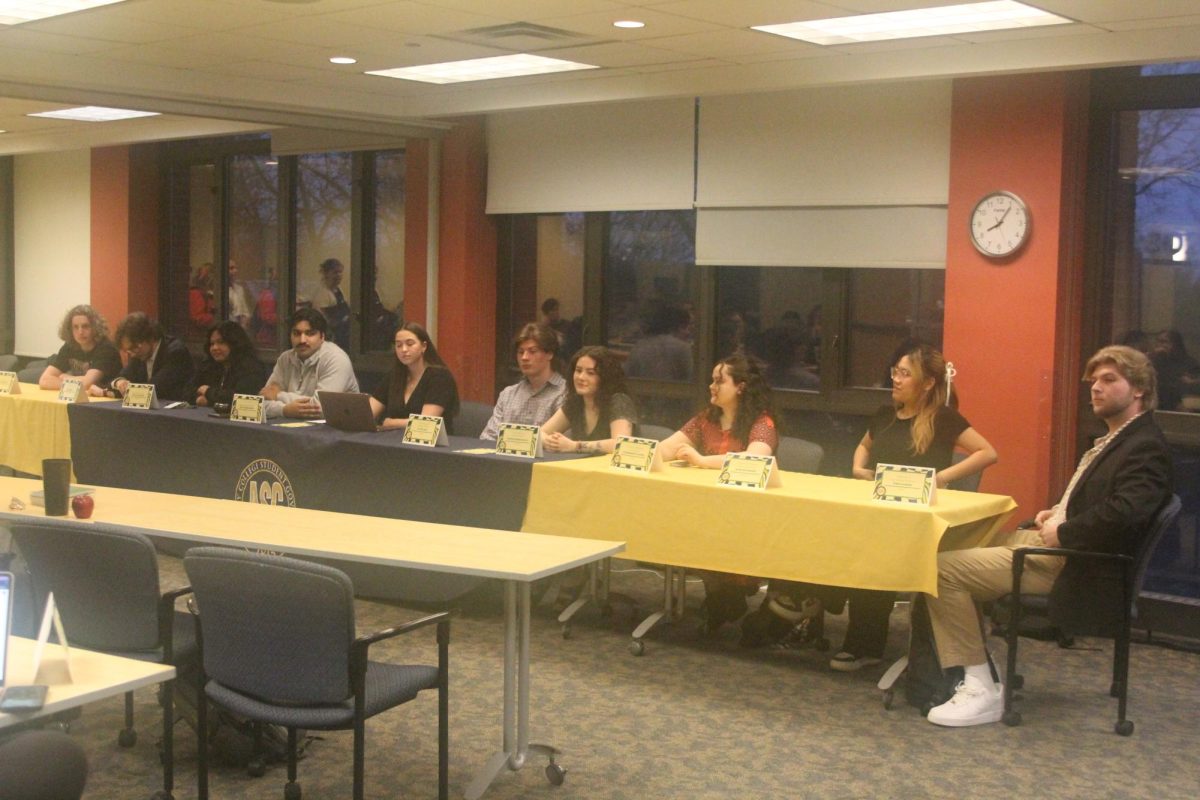By KATIE McHUGH
Features Co-Editor
[email protected]
Several routine changes meant to clarify Allegheny’s conduct code and alcohol policy passed despite initial resistance from a student government upset with recent reversals of student wishes.
Previously, the college generally limited its disciplinary jurisdiction within the campus, but recent changes officially expanded its purview to include EL seminars, study abroad experiences, entertainment events officially sponsored by the college and other off-campus gatherings of students.
The college also implemented specific procedures stripping punished students of certain privileges. Students may be barred from attending formals, concerts, athletic events or other activities.
When Residence Life determines that a student may be a threat to others’ safety, they may bar the offender from entering certain residences.
The changes fueled some discontent with Residence Life.
“I’ve never been on the other side of a disciplinary hearing, so I don’t really have a right to speak about that, but people get very angry about the way policies are enacted,” said resident advisor Serafi na Lanna, ‘14.
Lanna also pointed out the tensions between administration and student body contributed to the resistance to the scheduled updates.
“There’s not really a great relationship between Res Life and the student body,” Lanna said. “It’s more of a relationship where people despise Res Life, and they’re maybe willing to subvert other things they do because they’re angry with policies. And that’s speaking as an RA, which is a little bit uncomfortable, but it’s true.”
Allegheny Senate Government senator Colin Soleim, ‘14, was surprised at the heated discussion surrounding the changes to the policies, but understood its roots.
Much of the controversy stemmed from misdirected frustration at the four-year residency requirement, Soleim said.
“I don’t think it comes from people getting in trouble,” he said. “I think it comes more from the fact that people can’t get the rooms that they want, and they have to live on campus. A lot of it comes from a sense of entitlement.”
According to Soleim, Residence Life’s prospective power loomed large in students’ imaginations.
“To be honest, it seems like people are just very afraid of the potential power of Residence Life, when really, they’re bound to a certain set of rules,” Soleim said. “They’re not the national government, where we have this fear that they have infinite power.”
“They can only do so much and they’re not going to use all their powers if at all possible,” he said.
ASG assistant director of concerts and special events Kyle Trogstad-Isaacson, ‘13, who took issue with the jurisdiction stretching to off campus locations, posted the first draft of the rules on his Facebook page, eliciting outrage from peers.
“I told them what the changes were going to be, and they felt that [they] were going to be screwing around with off-campus housing,” he said, “I understand you are under the student conduct policy as soon as you matriculate, but at the same time, it’s an off-campus building for a reason.”
As a Theta Chi brother living off campus in the fraternity house, Trogstad-Isaacson felt personally pressured by the changes.
“That’s our house. That’s our autonomy. We don’t like to be tread on,” he said. Residence Life, however, stressed that the changes were simply clarification of existing procedures.
“The biggest change for the conduct policy was just adding the restrictions and loss of privileges section,” said assistant director of Residence Life Joe Hall, explaining there were no significant changes made to the policies. “Those were things we already utilized for students in conduct meetings and our follow-ups with them in terms of taking certain things away depending on the situation.”
Warnings were also extended to two years.
“Sometimes, when an event is on a borderline between a warning and a probation, a warning for a year sometimes doesn’t suffice,” said Hall. “So having say, two years, would give us more of an opportunity to just extend a warning rather than put a student on probation.”
Warnings, unlike probation, do not require parental notification, except in certain cases involving illegal substances or violent behavior. They may now be given to students involved in misconduct off campus.
Incidents involving drugs, violence, or other serious circumstances occurring aboard could now result in disciplinary action. Conduct policy, no matter where it is broken, may result in disciplinary action.
“There could be certain circumstances where we need to follow-up with that student before allowing them back into the community,” said Hall.
“They’re still representing the college, they’re still students,” said Hall. “Those are really rare circumstances but they do happen.”
More severe penalties, such as fines, were considered but dropped, Hall added.
Policy Clarifications
1. Misconduct violations during EL Seminars, Study Abroad experiences, entertainment groups, and off campus gatherings that violate the Honor Code or College policy are now subject to disciplinary action according to the procedures outlined in the student conduct system.
2. For academic and nonacademic conduct matters, warnings may now be extended to two years and under certain instances, parents or advisors may be notified.
3. In certain circumstances, students convicted of misconduct may lose certain privileges including but not limited to: attending formals, athletic events, concerts, or other campus programs. Parents or guardians may also be notified.
4. The official alcohol policy now includes the risks of consuming alcohol: signs of alcohol poisoning, and increased risk of injury and sexual assault.







Commonsence • Apr 16, 2012 at 10:01 pm
Its about time that there is action taken by the administration which actually has the effect of punishing students. People often forget that the consumption of alcohol underage is illegal and the college should at least (I mean a minimum) uphold federal and state regulations whatever they be. Any student attending a seminar or sporting event does so under the jurisdiction and auspices of the college. Of course they should be held responsible for all actions while attending college sponsored activities (think about it, what is the first institution likely to get sued when a student dies from alcohol abuse while on a college sanctioned trip… uh Allegheny of course). Lets face it, most of these policies were made fairly visible to people when they came to Allegheny, if you read everything you sign most of these things are right there in black and white. It is because we live in an increasingly litigious society that the fine print must be expanded and elaborated upon. If you abide by the law and use commonsense, everything will be just fine.